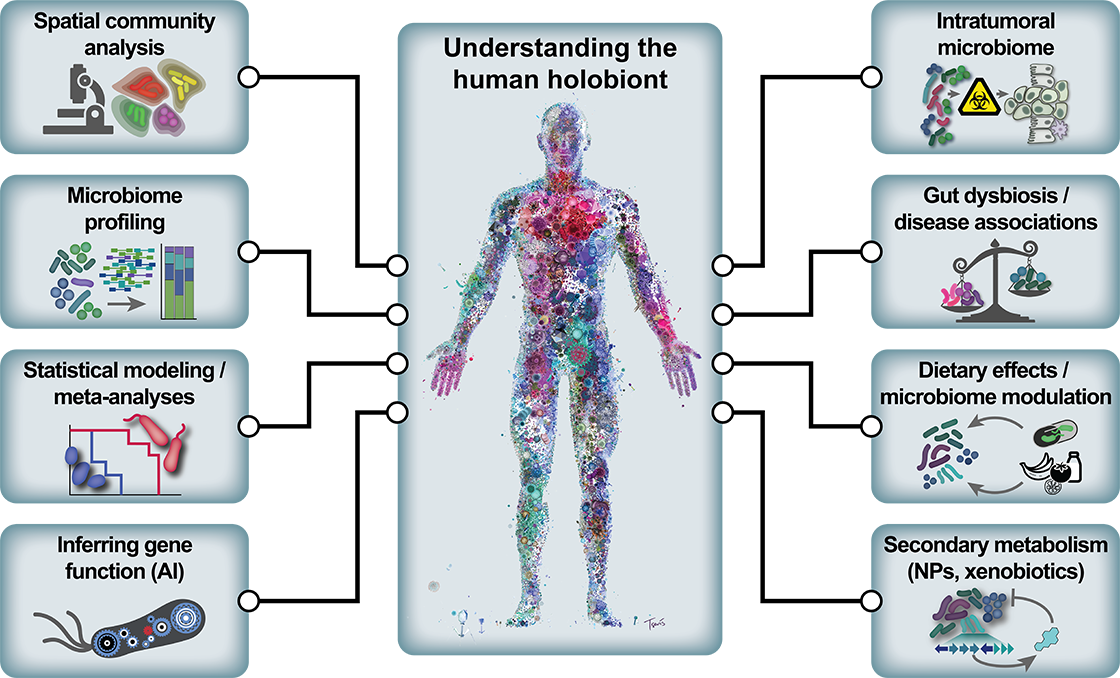Our Research

The group’s mission is to gain a better quantitative understanding of the human microbiome as an important determinant of human health and disease using systems biology approaches. To be able to study the complex crosstalk between microbes and host cells in the human holobiont, we develop experimental techniques (sequencing and imaging protocols) and computational tools (taxonomic and functional profiling software as well as statistical and machine learning analysis workflows, see Tools page). We apply these tools in various interdisciplinary and collaborative projects to investigate factors shaping microbiome composition (e.g. diet and medication), how microbes modulate the impact of environmental factors on the host (e.g. through bacterial drug metabolization), how microbes and their metabolism may contribute to disease processes (such as inflammation or carcinogenesis in various organs) and how we can harness novel, more rational microbiome modulation approaches to restore human wellbeing or improve the outcome of medical treatments.
Current Projects